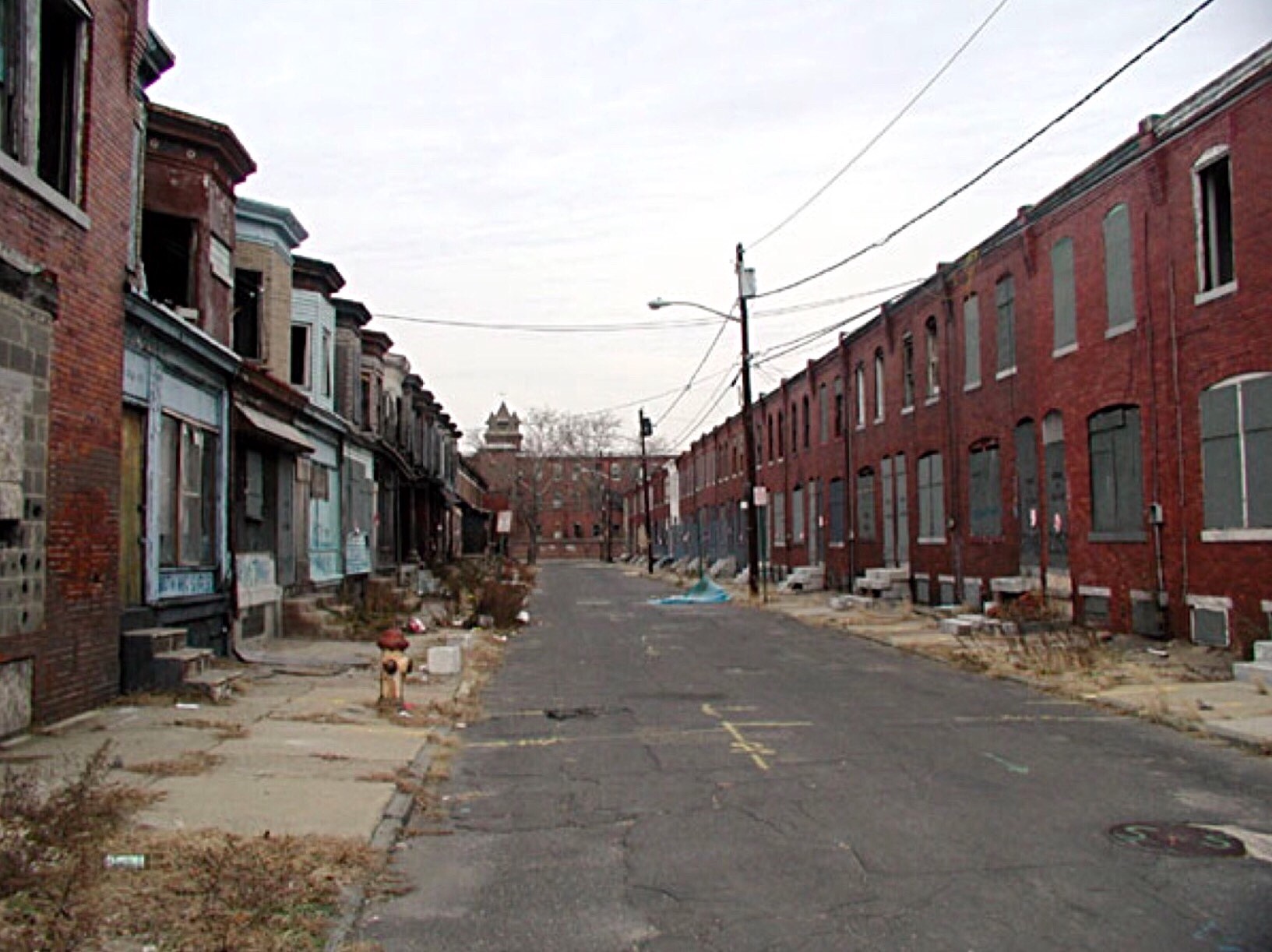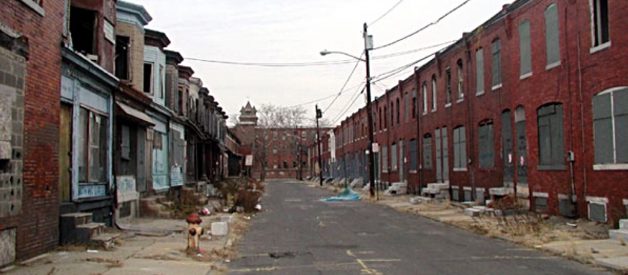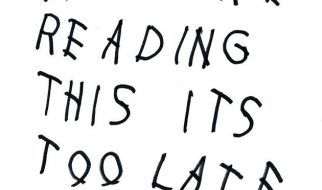
When America next experiences an economic downturn, it won?t be like the relatively small recessions that the country used to regularly undergo before the 2008 crash. It will be a collapse of such magnitude that the global economy won?t ever be able to recover, like it eventually did after the Great Depression. It will likely be the end of the growth period of capitalism, and the beginning of an unprecedented contraction that leaves civilization dramatically changed.
There are several factors behind this uniquely perilous precipice that the economy is teetering on. I?ll first focus on the one that will set off the process of collapse, then examine how the other factors will exacerbate the damage.
What will start the crash: the capitalist world?s concentrated and unsustainable financial system
Stalin observed that ?Imperialism is the omnipotence of the monopolist trusts and syndicates, of the banks and the financial oligarchy, in the industrial countries.? This quote was in the context of an essay where Stalin illustrated how imperialism creates a self-destructive problem with how modern capitalism functions; he concluded that because imperialism makes corporate power dominant over the institutions of society, people aren?t able to defeat corporate power through reforms but rather through overthrowing the system.
This contradiction of imperialist capitalism, as Stalin described it, has grown more pronounced than ever. After the 2008 bailout, the big banks gained even more power over the economy than before, making them impossible to adequately regulate without breaking them up. The five biggest banks now own around half the industry, and in 2013 it was estimated that the largest 0.2 percent of banks control 69 percent of bank assets. This has happened while Wall Street and the government have become one, with the Obama and Trump administrations both going out of their way to put bank executives in high positions.
Naturally, the experience of the workers and the unemployed has gotten more filled with hardship in the last decade. Most Americans haven?t recovered from the Great Recession, and global inequality has continued to rise. Debt, both within the households of struggling proletarians and within the financial system, has risen since 2008 and has so far surpassed its 2008 levels. People aren?t able to make a living like they used to. The contradiction between labor and capital, as Stalin called this issue, is becoming ever more severe.
This reality, that monopolies and slowing economic growth have driven down living standards, undercuts the narrative that capitalism has recovered from the recession and is undergoing a ?boom.? What good is a healthy stock market when the world?s economy is sitting on financial bubbles that are similar to the ones which led up to the 2008 crash? What good are low official unemployment numbers when many working people are still poor and sinking ever deeper into debt? The current ?prosperity? is built on borrowed time. As Marshall Auerback wrote in his article from last year The Global Economy Is a Time Bomb Waiting To Explode:
If you thought the near-breakdown of the global economy in 2008 was enough to make global policymakers and regulators rethink their persistent accommodation of financial innovation and deregulation, think again. Regulators have continued to accommodate this complexity, rather than minimizing it. Complex financial systems beget yet more complex (and ultimately ineffective) regulation. It is better to simplify the system in order to improve the quality of the regulation and the ease of oversight (which the complexity is designed to avoid).
Unfortunately, that?s not what our policymakers have done. Instead of redesigning the system, the monetary authorities have simply inserted themselves in the chain of intermediation that included an ever-evolving variety of books of business without actually considering whether there were too many weak links in the credit chain in the first place. Rather than shorten or redesign the economy?s credit structures, and curb the risks accordingly, central banks instead have simply acted as the ultimate guarantors in a supply chain from money-like instruments to longer-term and riskier credit. Absent any kind of sanction for undertaking more systemically dangerous activities, our policymakers have therefore made the same mistakes that were made in the early 2000s: they are establishing perverse ongoing incentives that increase risk, punishing the timid (prudent?) with low returns. It?s a classic illustration of Gresham?s Law, whereby bad money drives out good.
So sometime this decade, most likely within the next two years, the economy is going to contract again, and this time there won?t be a stable enough financial structure to keep it from turning into a depression. The banks, being more powerful than ever in a paradigm of neoliberalism and corporatized imperialism, have made themselves politically impune from consequences for the damage they wrought in 2008. As a result, the unsustainable system they?ve created is going to crash again, this time even more severely.
What will exacerbate the crash: the fall of U.S. imperialism and the decline of the dollar
It?s no coincidence that the great crash of the 2020s is approaching at the same time when the American empire is in a rapid state of decline, and when global capitalism is collapsing. The United States, which is the epicenter for global imperialism, was naturally the country whose deregulatory policies triggered the last global recession. So its internal economic crises throughout the 2020s will have similar global ripple effects, ones which will be exacerbated by the worldwide decline in capitalist growth.
These falling dominos of bourgeois economic power will ultimately be offset by the collapse of the American empire, which factored into the 2008 crash and will have an even bigger impact on the next downturn. The unraveling of America?s financial system, which is so concentrated and dangerous because of America?s role as the core imperial country, is inseparable from the unraveling of Washington?s geopolitical influence.
Having noted these connections between the capitalist world?s financial, economic, and imperialist structures, it?s easier to understand why the financial crash will happen around the same time as a key part of the U.S. empire?s collapse: the fall of the dollar. The increasing abandonment of the dollar by world powers in the last two decades has so far provoked an anxious reaction from the empire; Washington has recently threatened to militarily attack Iran and Venezuela because of these countries? shifting away from the dollar in international trade. The increasingly heavy-handed U.S. sanctions on these and the other nations that have forsaken the dollar, which in recent years have been accompanied by trade wars and blatantly illegal military interventions, are destroying Washington?s global reputation and speeding up the worldwide move away from American currency.
It?s likely that at some point this decade, American currency will lose enough of its global reinforcement that this will take a severe toll on the country?s economy. Chris Hedges has observed that:
The dollar, because of astronomical government debt now at $21 trillion, a debt that will be augmented by Trump?s tax cuts costing the U.S. Treasury $1.5 trillion over the next decade, is becoming less and less trustworthy. The debt-to-GDP ratio is now more than 100 percent, a flashing red light for economists. Our massive trade deficit depends on selling treasury bonds abroad. Once those bonds decline in value and are no longer considered a stable investment, the dollar will suffer a huge devaluation. There are signs this process is underway. Central-bank reserves hold fewer dollars than they did in 2004. There are fewer SWIFT payments???the exchange for interbank fund transfers???in dollars than in 2015. Half of international trade is invoiced in dollars, although the U.S. share of international trade is only 10 percent.
When the country?s financial system unravels, the dollar will become even less stable, prompting further international efforts to shift to other currencies, more economically motivated belligerence from Washington, and so on. The reality that America?s economy will be not just internally vulnerable during the next crash, but also lacking in support from the other biggest superpowers, is apparent from America?s uprecedentedly strained relationship with China. Unlike last time, China isn?t going to bail out the U.S. economy amid this next downturn.
The U.S. will soon be more economically weak and globally isolated than it?s ever been throughout its existence as an empire. And I say that with the Great Depression in mind, because the economic collapse we?re about to face will consist of more than the traditional financial factors. It will also be tied in with the collapse of the climate.
What will make the damage from the crash irreversible: runaway climate change
Here my analysis grows even broader. In its imperialist stage, capitalism has not just expanded corporate power so much that it?s strangled the economy?s ability to sustainably function. It?s exploited the natural world too much for civilization to continue to exist on its traditional scale. Over 70% of carbon emissions are made by the top 100 largest corporations, and the U.S. military is the world?s single largest polluter. These institutions, which are perpetuated by U.S. imperialism and its bombings, drone campaigns, occupations, and global proliferation of neoliberalism, have driven the planet to an ecological and climatic breaking point.
The current consensus is largely that global temperatures will likely warm by around three degrees Celsius by 2100. This will make oceans at least a meter higher by that point, displacing over 700 million people through floods. In such a scenario, many of the world?s arid regions will also become unlivable, prompting unprecedented mass migration as the world is beset by conflict and resource shortages. In the next ten years alone, this process will already be very far along, with over 120 million additional people estimated to be driven into poverty by 2030 because of climate change. This number gives a rough idea of the amount of fires, floods, agricultural failures, storms, breakdowns of infrastructure, and water shortages that will have happened by 2030 in order for these many people to lose their livelihoods.
Yet it?s not even inevitable that these many people will enter into such privation. If they do, it will be the result of a system that prioritizes the safety and comfort of the rich over that of the lower classes. The UN report from last year that estimated this will happen to 120 million people goes by the assumption that these disaster victims will be neglected by capitalism, creating what the report describes as a situation of ?climate apartheid.? In this respect, capitalism will make its own crisis even worse in the years during and after the next economic crash.
During the mid-2020s, which is likely when the economic disaster will be in full force, the people struggling with home foreclosures, unemployment, and unpayable debts will also be experiencing heightened versions of the natural disasters from the last decade. In the U.S., hurricanes will be pounding the Eastern and Southern coasts, fires will be ravaging the West, and drought will be intensifying throughout the continent?s West and center. The climate?s destabilization will of course be impacting the rest of the world, perhaps most severely through the future fires in Brazil and Australia-which alarmingly are two countries that have aggressively embraced neoliberalism. Unlike in socialist countries like China, the capitalist world will be hit hardest as climate change continues, because capitalism leaves the poorer people behind in situations of crisis.
The climate-related crises that poor people in the U.S. alone have recently faced shows how much worse the economic crash will make their plight. Amid rapidly declining living standards and a new wave of austerity, poor people will less likely be able to find nourishment and shelter in the aftermath of a superstorm. It will become harder for lower class people in the Southwest to afford water. The Californians who will have their electricity regularly cut off in the coming years because of the power grid?s exacerbation of fire risks won?t easily be able to manage the financial damages from these events. Given how costly recent hurricanes have been, tens or even hundreds of billions of dollars will be lost each year due to damages from climate change, making the coming depression even more severe.
Ultimately, climate change will cause an irreversible contraction of markets and commerce by shrinking the amount of habitable space and reliable agriculture. Capitalist markets are about to overall enter into an era of rapid decline, and their potential for a rebound will be made harder by the fact that socialism is going to gain great economic power throughout this century. China?s Belt Road Initiative is reorienting the center of global markets, and a wave of anti-capitalist uprisings has begun around the globe. The fall of the American empire will precipitate the decline of global bourgeois bargaining power, eventually putting the main economic leverage into socialist forces like the Communist Party of China.
In the business world, capitalists are looking to adjust their efforts for obtaining profit amid an unstable future. ?Investors increasingly are asking companies to disclose the steps they are taking to prepare for a warmer planet,? reported a Wall Street Journal article this week. ??Climate risk is investment risk,? Laurence Fink, chief executive of BlackRock Inc., the world?s largest asset manager, said in his annual letter earlier this month.?
In the political world, the current anxieties of the ruling class involve threats more alarming than ?investment risk.? The near term stability of capitalist society is in question. The system has consumed too much of humanity and nature, so now the system is eating itself. Mass surveillance, censorship, militarized police, the erosion of civil liberties, and border militarization are how the imperial core has dealt with the destabilizing events of the last two decades. When things really start to unravel, these tools for maintaining control will be put to the test.
?????????????????????????????????????????????????????
If you appreciate my work, I hope you become a one-time or regular donor to my Patreon account. Like most of us, I?m feeling the economic pinch during late-stage capitalism, and I need money to keep fighting for a new system that works for all of us. Go to my Patreon here:


